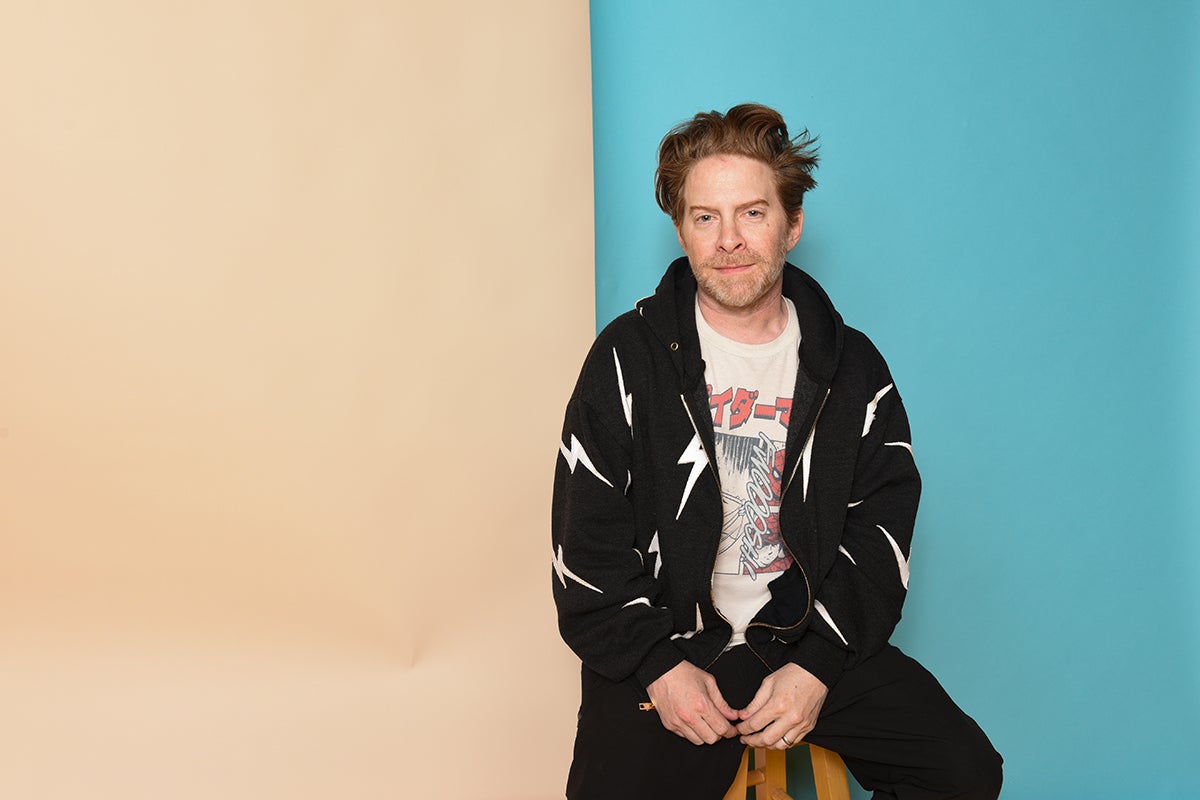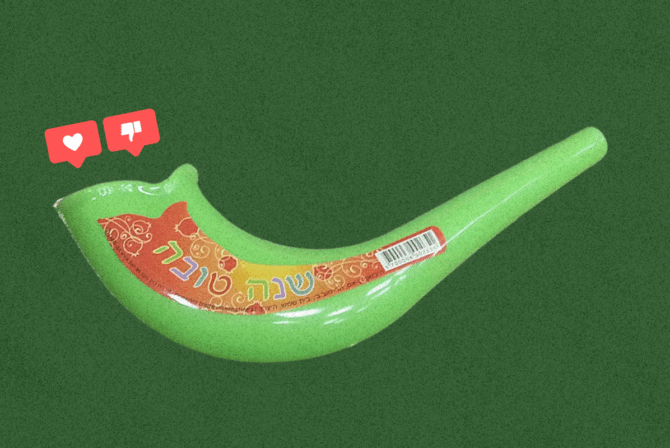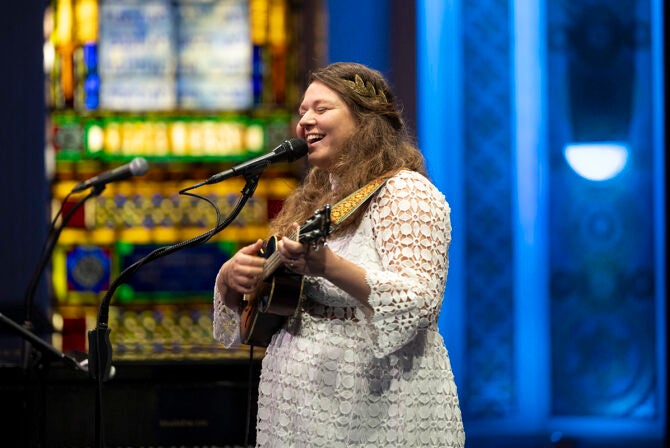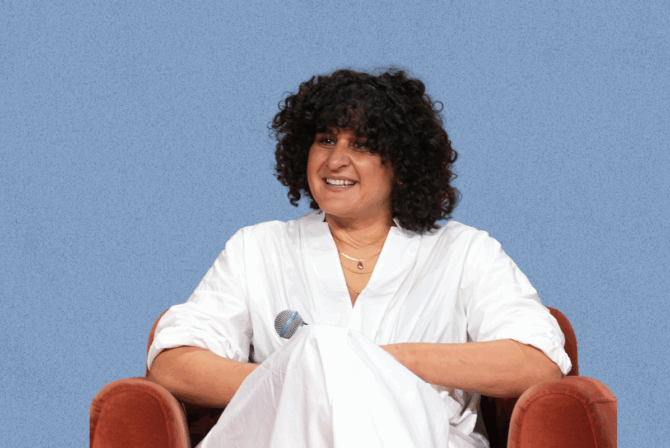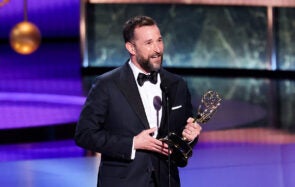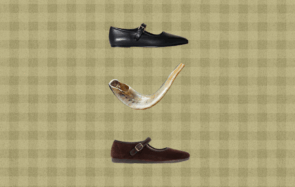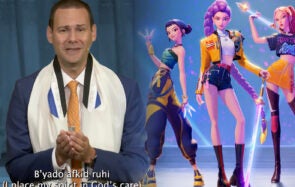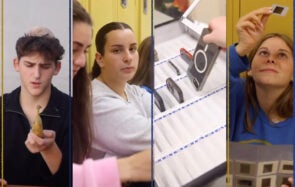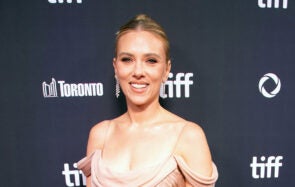If it weren’t for Jewish summer camp, the world may never have gotten the gift of Seth Green.
OK, so maybe that’s hyperbole. Anyone who has watched the Jewish actor in “Buffy the Vampire Slayer,” “Can’t Hardly Wait” and “Austin Powers” knows he just has it, the Borscht Belt entertainer style je ne sais quoi that draws an audience in. He’s magentic and charming, even when he plays the most unlikable character.
But the “Robot Chicken” creator did tell Kveller last week that camp, specifically URJ’s Camp Harlam, is where he first caught the acting bug. He used a song from camp to audition for his first manager. And overnight camp helped give him the tools to move to Los Angeles as a teen by himself to launch his now iconic career.
So it’s fitting that Green is returning to Jewish summer camp in Rachel Israel’s “The Floaters,” a movie that will make you feel all the Jewish summer camp nostalgia in the world, even if you’ve never been to camp.
He plays petulant manchild Daniel, a tailored-khaki-pants-and-canary-yellow-polo-wearing (you know the one) head of Camp Barak, which is in stiff competition (instigated mostly by Daniel himself) with the movie’s central Camp Daveed, lead by Sarah Podemski’s Mara.
Daniel and “Nobody Wants This” Jackie Tohn’s Nomi, Mara’s camp BFF who is there for the summer as her rockstar music career stalls, spar so delightfully in this wonderfully Jewish reprieve of a film that you’re kind of rooting for a spark to ignite between these two. They’re so much fun to watch, just like this entire movie.
We talked to Green about the Jewish lessons he learned at camp, the Jewish rituals and values that ground him, what his bar mitzvah was like and why he thinks every kid should go to overnight camp.
This interview has been lightly condensed and edited for clarity.
You grew up going to Jewish summer camp. What made you want to go back to it for this movie?
I had some of the most positive experiences of my life at summer camp. I had such negative experiences at school… I wasn’t cool. But I saw summer camp as an opportunity to completely reinvent myself and be the person that I wanted to be.
I thought this script captured that moment in kids’ lives where they’re doing something that’s so matter-of-fact because it’s traditional, but getting their own new, relatable experience through it. When you’re young, you get the opportunity to discover things about yourself, through traditions, through other people’s nostalgia, and that’s what this movie felt like. It felt like it really captured that moment that I related to and wanted to be a part of putting on film.
Did you connect to anything about Daniel’s character? He is really, really delightfully funny.
I read this script and I was like, oh, this guy’s the asshole! I know this guy! Every single time this guy shows up, you gotta hate him. Every single time he’s on camera, you’re gonna be like, I just don’t like this guy. So that was it for me. I was like, that’s a very fun character to play, the person whose every breath upsets you.
Were there any specific things about the movie that you were like, “this is so my summer camp experience!”
It all just felt very like that! The kids put on a show at the end of the term. The bunks. The times you sneak out and take a hike you’re not supposed to and almost get really lost. The burgeoning teenage emotions. You’re feeling everything from an attraction to the opposite sex to “who am I, and what am I even doing here?” I felt like all of those things got captured really nicely.
Part of the magic of camp is how free kids feel in that environment.
It was definitely liberating. I felt a lot of autonomy at summer camp — very different from being in school. You had to follow rules, but we were also out in glorious nature, doing physical things. Nobody would ever let me play basketball at school. When I played kickball [at school] and I’m up to bat, everybody moves in closer, closer. But at summer camp, I’m like, pitching three pointers, and all of a sudden I’m MVP on the court just because I’m trying so fucking hard.
What were some of the Jewish concepts that you feel you connected to better at camp?
There was a lot of education about the Holocaust, and just a lot of focus on understanding because it’s less about being Jewish than it is about really understanding how evil can exist in the world and can coexist with so much beauty and joy and goodness.
I think that Judaism helps equip you for the nonchalance of life. In spite of any persecution, you just sort of find ways to live.
I feel like I’ve always been set apart. I’m short, I’ve got red hair, I’ve got a funny name. I was raised Jewish. All these things set me apart and I had to become comfortable with the things that I am, as opposed to trying to remake myself as something else that would be more appealing to other people. And I definitely feel like being raised Jewish helped give me the tools to get there — to even start that kind of journey.
You’ve talked about how your mom worked at your summer camp, and I know she was really central to your early career. What kind of Jewish mom was she?
In a lot of ways, she wasn’t a traditional Jewish mom, but she was faithful. She was very faithful. She wanted us to go to the temple. She wanted us to understand the value and practice of Jewish rituals. It was really important to her that I got bar mitzvah-ed and all that.
But then beyond that, it was just the tenets, right? The biggest thing she insisted on was that we didn’t see anybody as different, regardless of their color, their theology or their station. That people were people, regardless of what they were going through. And I learned that really early and really well.
Which Jewish rituals bring you joy, or make you feel connected?
I like all the rituals, for the things that they force you to think about. I like taking those moments to think, but I’m not the most faithful. Like my faith is, I try to walk it like I talk it.
It’s all super familiar. I don’t mind consecrating the Sabbath. I don’t do it regularly, and I don’t keep kosher, but lighting candles at a time when it can set a tone… I like the concept of Judaism as safe harbor, and I like, as a person, being a safe place.
Did you have a bar mitzvah theme?
I was such an obnoxious kid. I was so young and arrogant. I was pretentious. I had a high degree of understanding at a young age, and I needed to display that. I’m pretty sure I quoted John Lennon in the speech. No wonder I got my ass kicked so much.
I don’t think there was a theme at my bar mitzvah; one of the kids had done Miami Vice for his theme and I just thought that was the coolest. I remember we had ties and I was the first kid on the dance floor, and I was the first person to tie my tie around my head. I danced with the tallest girls in the room.
Speaking of music — did you have a favorite song at camp?
There’s a song called “Circle Game” that I remember really loving, even though it’s so melancholy.
And there’s another, I think it’s called “My Favorite Toy.” I don’t even know who wrote it, or if it’s a real song, or if one of our [staff members in charge of songs] wrote it, but it’s what I used to audition for my first manager, because it was such a quirky song and had so many hand movements.
That’s amazing. Jewish summer camp really pulled through for you!
Yeah, I was teed up for success in a lot of areas with the stuff that I learned. You go canoeing, you jump in a lake… [they didn’t just teach us] about theological practice, it was also like, “Hey, here’s how you climb this tree, you knucklehead.”
It gives you a feeling of capability, right? “I can do anything!”
You go away for 30 days, overnight, and your folks aren’t there?! Yeah, you gotta figure it out. I’m an advocate of overnight camp, for sure. You get over the crying, the being gone for the first night, and then you’re like, alright… I’m here to have an experience.
“The Floaters” premiered at Bentonville Film Festival on Wednesday, June 18, 2025 at 5:30 p.m. ET.
